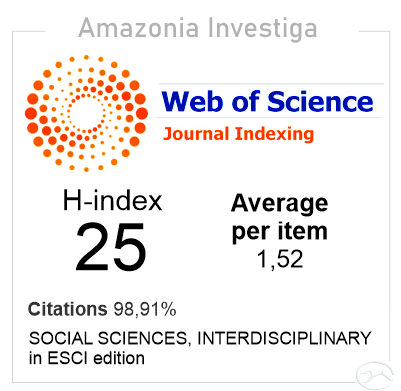Psychological features of training future social workers
DOI :
https://doi.org/10.34069/AI/2023.68.08.23Mots-clés :
social worker, psychological support of the population, social work, social assistance, personality formation of social workers, use of psychological methods in social work.Résumé
Social work belongs to professions that have emerged and established themselves to meet urgent societal needs. The purpose of specialists in this field is not only to create necessary conditions for the social protection of people, groups, and communities but also to foster their ability to build their lives and mobilize internal resources to overcome life crises. The article aims to characterize the practical significance and types of social work while exploring the essence of psychological aspects in the professional activity of social workers. The main directions of the article are to investigate the interrelation between social work and psychology and to clarify the psychological features of education for future social workers. Several research methods were employed, including general scientific methods such as synthesis, analysis, deduction, and induction, which helped determine the research goal and conduct the analytical processing of scientific sources. It enabled the structuring of available domestic and foreign literature on psychological and social work matters and the historiographic and retrospective methods. The research findings reveal vital theoretical aspects of psychological preparation for future social workers during their educational process. The study of scientific-practical materials allowed identifying essential trends in training for social work professionals.
Téléchargements
Références
Balakhtar, V. (2018a). Methodology of considering the formation of the favoritness facilities of social responsibility. Psychological Journal, 4(10), 171-184. https://doi.org/10.31108/1.2018.10.20.11
Balakhtar, V. (2018b). The social-psychological support of the formation of the personality of the social work specialist in practical professional activity. Psychological Journal, 4(9), 9-24. https://doi.org/10.31108/1.2018.9.19.1
Balakhtar, V. (2019). The socio-psychological features of professional path elaboration as a professional-personal formation of social workers. Psychological Journal, 5(9), 27-44. https://doi.org/10.31108/1.2019.5.9.2
Bierman, K. L., & Sanders, M. T. (2021). Teaching explicit social-emotional skills with contextual supports for students with intensive intervention needs. Journal of Emotional and Behavioral Disorders, 29, 14-23. https://doi.org/10.1177/1063426620957623
Blewitt, C., O’connor, A., Morris, H., Nolan, A., Mousa, A., Green, R., ... & Skouteris, H. (2021). “It’s embedded in what we do for every child”: a qualitative exploration of early childhood educators’ perspectives on supporting Children’s social and emotional learning. International Journal of Environmental Research and Public Health, 18, 1530. https://doi.org/10.3390/ijerph18041530
Ding, X., Lightfoot, E., Berkowitz, R., Guz, S., Franklin, C., & DiNitto, D. M. (2023). Characteristics and Outcomes of School Social Work Services: A Scoping Review of Published Evidence. School Mental Health. https://doi.org/10.1007/s12310-023-09584-z
Fedorenko, O. H., Havrysh, O. H., & Velychko, V. Y. (2022). Features of using Moodle tools in the training of future social workers. Educational Dimension, 7, 261-281. https://doi.org/10.31812/educdim.4714
Fedorenko, O. H., Velychko, V. Y., Stopkin, A. V., Chorna, A. V., & Soloviev, V. N. (2019). Informatization of Education as a Pledge of the Existence and Development of a Modern High School. CTE Workshop Proceedings, 6, pp. 20–32. [Online], https://doi.org/10.55056/cte.366
Forman, S. G. (2019). Implementation science and school psychology: Future needs for research and practice. Journal of School Psychology, 76, 62-65. https://doi.org/10.1016/j.jsp.2019.07.018
Forrester, D., Killian, M., Westlake, D., & Sheehan, L. (2020). Patterns of practice: An exploratory factor analysis of child and family social worker skills. Child & Family Social Work, 25(1), 108-117. https://doi.org/10.1111/cfs.12664
Havrysh, O., Velychko, V., & Fedorenko, O. (2021). The role of information and communication technologies in the professional training of social educators for work with refugees in Germany. Electronic Scientific Professional Journal “Open educational e-environment of modern university”, 11, 49-61. https://doi.org/10.28925/2414-0325.2021.114 [in Ukrainian].
Huang, Z., Wang, Q., Chen, H., & Gao, X. (2021). Engaging with others: the report on the study on social and emotional skills of Chinese adolescents (V). Journal of East China Normal University (Educational Sciences), 39, 93-108. https://doi.org/10.16382/j.cnki.1000-5560.2021.09.006
Jennings, P. A., Doyle, S., Oh, Y., Rasheed, D., Frank, J. L., & Brown, J. L. (2019). Long-term impacts of the CARE program on teachers’ self-reported social and emotional competence and well-being. J. Sch. Psychol, 76, 186-202. https://doi.org/10.1016/j.jsp.2019.07.009
Korneshhuk, V., Kolodijchuk, Yu., & Bodelan, M. (2018). Theory and practice of professional training of future social workers: monograph. Odesa, 296. https://acortar.link/2ZllAT
Kropelnytska, S. O., Myhovych, T. M., & Kulesha-Lyubinets, M. M. (2019). Development and implementation of social projects in Ukraine. State and regions. Series: Economics and Entrepreneurship, 1, 37-43. http://lib.pnu.edu.ua:8080/handle/123456789/3417
Lustick, H., Norton, C., Lopez, S. R., & Greene-Rooks, J. H. (2020). Restorative practices for empowerment: A social work lens. Children & Schools, 42, 2: 89-98. https://doi.org/10.1093/cs/cdaa006
Lynch, A., Newlands, F., & Forrester, D. (2019). What does empathy sound like in social work communication? A mixed-methods study of empathy in child protection social work practice. Child & Family Social Work, 24, 139-147. https://doi.org/10.1111/cfs.12591
Pascoe, K. M., Waterhouse-Bradley, B., & McGinn, T. (2023). Social Workers’ Experiences of Bureaucracy: A Systematic Synthesis of Qualitative Studies. The British Journal of Social Work, 53(1), 513-533. https://doi.org/10.1093/bjsw/bcac106
Ravalier, J., Wegrzynek, P., Mitchell, A., McGowan, J., Mcfadden, P., & Bald, C. (2023). A Rapid Review of Reflective Supervision in Social Work. The British Journal of Social Work, 53(4), 1945-1962. https://doi.org/10.1093/bjsw/bcac223
Reith-Hall, E., & Montgomery, P. (2023). Communication skills training for improving the communicative abilities of student social workers: A systematic review. Cambell Systematic Reviews, 19(1). https://doi.org/10.1002/cl2.1309
Ruch, G., Turney, D., & Ward, A. (2018). Relationship-based social work: Getting to the heart of practice. (2nd ed.), Jessica Kingsley Publishers. https://acortar.link/pfzOuQ
Saar-Heima, Y. (2023). Power with and power over: Social workers’ reflections on their use of power when talking with parents about child welfare concerns. Children and Youth Services Review, 145, 106776. https://doi.org/10.1016/j.childyouth.2022.106776
Sur, D., Ashcroft, R. & Adamson, K. (2023). Frontiers in Psychology Examining diagnosis as a component of Social Workers’ scope of practice: a scoping review. Clinical Social Work Journal, 51, 12-23. https://doi.org/10.1007/s10615-022-00838-y
Xie, X., Zhou, Y., Fang, J., & Ying, G. (2022). Social Support, Mindfulness, and Job Burnout of Social Workers in China. Psychology Frontiers in Psychology, 13. https://doi.org/10.3389/fpsyg.2022.775679
Zaveryko, N., Matskevich, Y., Balukhtina, O., Sementsova, O., & Ivanova, L. (2022). Psychological and pedagogical features of training future social service workers. Revista Eduweb, 16(3), 218-231. https://doi.org/10.46502/issn.1856-7576/2022.16.03.16

































































.gif)






